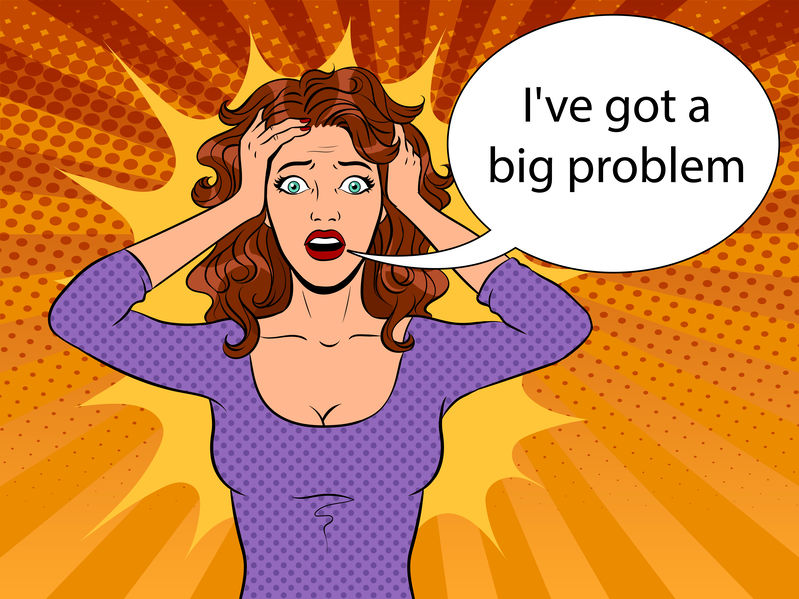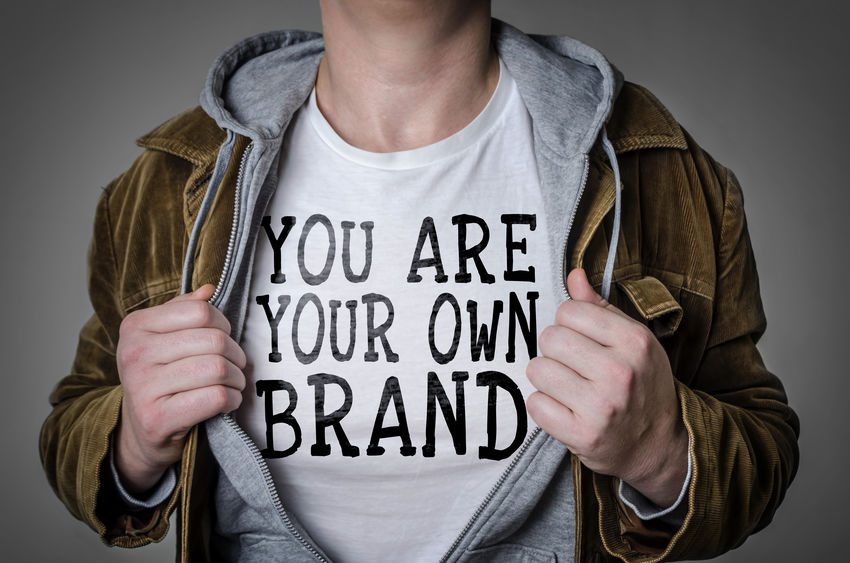Perception Changes Reality of Whether They Want You
What’s special about this article is today you find out WHY they like you or choose you, or not.

Remember this from Coffee with Kevin Hogan, a couple years ago?
John’s a sharp guy. A few years ago he had just started reading Coffee with Kevin Hogan and just found out that people perceive wine to taste better if the name on the label of the bottle has a cool name.
 He read a little further and found out that where the winery was located is actually a trigger for a girl to want to continue dating him or not. (California, France, Italy, Australia,
He read a little further and found out that where the winery was located is actually a trigger for a girl to want to continue dating him or not. (California, France, Italy, Australia,
Washington were all good but North Dakota didn’t work in the girl’s mind. A North Dakota wine label triggered the “not with you again” reaction.
Not only did the girl drinking the North Dakota Wine eat less food than one drinking a California wine, she didn’t want to come back to the restaurant with the guy that brought her here!
Wow!
And then he found the most complex piece of information yet… Even world class experts can’t reliably predict the difference between expensive wine and every day wine.
John realized he had a problem that he didn’t have before he started reading Coffee with Kevin Hogan.
He had just learned that people make choices and big decisions like whether she might go out with him again or not, based on something as goofy as the wine that was chosen at dinner! His future literally could hinge on what wine a restaurant has in stock.
What does “reality” mean anyway.
Everyone seems to know the sentence, “perception shapes reality, ” but what does THAT means and how could it be useful in a real life sense.
Consider someone aims a gun at a target, shoots, hits the bullseye, but the shooter has been taking hallucinogens.
Gun, bullet, target, all same as they were before drugs as after even if the shooters perceptions changed, actual reality isn’t altered
So In that context the reality doesn’t change. Bullseye.

Consider these 5 statements.
At least one of the first three is likely to be TRUE. What’s interesting is people don’t agree at all on which are true and which are false.
The same is true of 4,5. People have STRONG differences in how they experience reality when considering these statements.
1. Coronavirus is a real, deadly disaster.
2. Coronavirus is a planned attack on categories/groups of people.
3. Coronavirus is mostly like any other cold or flu.
4. Joe Biden is the better choice for President.
5. Donald Trump is the better choice for President.
A great deal of life’s problems with other people, stem from perception. Who employs you, who loves you, who dislikes you, comes from PERCEPTION.

QUESTION: If YOU could change people’s perception OR reality, as far as the coronavirus and Presidential choice statements is concerned, would you?
Obviously.
And obviously there are a lot of people around you that have lost their minds and could use a healthy dose of perception and reality.
Think about it. If you really believe Trump is the best choice for the next four years then you probably don’t have a favorable opinion about Biden. And the opposite is true as well….And you probably can and do defend your point of view…with some ferocity. How can people possibly disagree with you? Are they just that stupid?
One of those guys actually disgusts you. That’s the really interesting part.
Those folks over there love that guy. And that means the friend of your enemy is your enemy.
There’s a lot of disgusting people on this planet and one of them happens to be running for President. The other one? Maybe he’s not perfect but he’s the only choice you have. Now let’s make this all about YOU.

Sometimes you do and you have perceived correctly.
Sometimes you have more of an opportunity or set of choices of which all might be mediocre or poor but not a problem.
This is where having a good grasp of reality AND the ability to CHANGE perceptions becomes valuable.
There is no quick fix for this without simply having big problems. But if you take a few minutes and understand perception, you’ll understand you, and why they think what they do about you.
Here are five facts you’ll touch on today.
- Perception (quite often) Changes Reality
2. Mood Changes Perception
3. Music Changes Perception
4. Music Changes Mood
5. Context Changes Perception
But wait… even though ALL of those are facts in all kinds of different situations… it feels ridiculous to think that reality TRULY is altered by perception. After all isn’t the phone, the phone and isn’t your wife, your wife. Aren’t your kids your kids and your job your job. You car must be your car.
If you close your eyes when you’re upset with your spouse does she disappear from reality?
I mean come on…the stars are in the same place they’ve been in the sky for as long as recorded history has been around. So if I say, “That star is Polaris, we call it the North Star,” everyone has to be pretty much on that page.
So maybe sometimes perception doesn’t change reality. Polaris really IS Polaris.
BUT…
Here’s where the secrets begin…

What do you see here?
I’ve played this game with people a number of times. Once I recorded the responses. Here are samples of the responses I got.
“It’s a bunch of matches. One is burned up.”
“They are matches. One has been used.”
“The black one is how I feel when (I don’t fit in).”
STOP.
One person IDENTIFIED with a BURNED UP MATCH.
Remember that forever. It will change your life.
People perceive STUFF to have meaning and they see themselves IN STUFF and they then develop LIKING or DIS-liking about that stuff.
This is how the brain works.
Then I ask, “Should we throw the black match away?”
“Sure.”
“It’s been used.”
“No, I’ll take it.”
Of course she will! It represents HER!
IDENTIFICATION IS PERCEPTION.
Simple enough.
Imagine now that YOU are the person who cleans out someone else’s closet or car… how do they feel when they see you doing that?
Imagine you suggest to replace that old beat up piece of furniture…
How do they feel inside and how does that cause them to feel about YOU?!
Now let me ask YOU another question.
Do people “think” when they are asked to decide on something?
You need their compliance.
Most people never think about capturing agreement with what we will call Identity Magnitude.
Do people “think” when asked a question by you? Quite often they do…and quite often they don’t.
It’s much easier to cause people to choose because of their identity than it is based on their ability to compute a rational and well thought out decision.
If someone identifies with you, they will likely go jump in the lake because you suggest it. If they don’t, they won’t.

When people are acting from their core identity, they don’t typically think when they are asked to comply with a request.
And their opinions about coronavirus and elections come from their identification with a group, not (necessarily) about reality.
They simply say “yes” if they identify based on internal triggers, or “no” if they don’t.
They will say “yes” or “no” based upon the product/service/yourself as being part of their identity or not.
Imagine if you will….
Are you a coffee drinker or a tea drinker?
Behavioral traits of both people are different…often very different. The traits are part of very different identities. Traits branch from identity.
People recognize you as being part of their (group) identity when the most important traits of the in-group connection are the same.
Identification Magnitude typically over-rides people’s requirement to think.
Sometimes that identification/connection is summed up in ONE SPECIFIC “BEHAVIOR.”
I reported two years ago in Coffee with Kevin Hogan on a research project that was absolutely profound as it relates to perception, identity and perhaps the ultimate question in all of influence. Here’s a refresher in just how powerful self perception can be…
Drinking beer or more specifically, saying that one likes the taste of beer, is a specific experience that connects people in a strikingly unusual fashion.
 Do you like the taste of beer?
Do you like the taste of beer?
Remember, the massive research project (250,000 people in the database) by a dating match website revealed dozens of startling facts about men and women and their behavior across a broad spectrum of dating issues.
One finding will capture the attention of everyone you tell this about this week.
It was discovered that there a is significant difference between the willingness of women to have sex on a first time encounter if they report liking the taste of beer vs. the rest of the population of women.
How significant?
Among all women in the study, not just those who like beer, 40% said they would be willing have sex after just meeting someone. (Not everyone, but someone.) Over 100,000 women. 40% would be willing…with someone.
Among those saying they like the taste of beer?
70% said they would be OK with having sex with someone they just met.
That’s…impressive.
Mother’s teach your daughters to drink wine.
Clearly there is a strong identity connection between the two experiences. It’s unlikely that the taste of beer or the shape of the bottle or the context of the bar itself are singularly responsible for this most interesting behavioral distinction. In fact, no other factor was discovered that might give you all but a guarantee of having a chance that someone would be open to having sex upon first “hello.”
Not wine, food, hard liquor, shoe size, height, weight…
Take home? Always remember that specific SYMBOLS, EXPERIENCES and TASTES can predict behavior or bias.
When I’m asked if I’d like a drink and it’s obvious that coffee, tea or Diet Coke are not the socially viable choice…I’ll have a glass of Merlot or Cabernet. There’s almost no chance I’ll have a second as part of my identity is being a light drinker. (That and I get far too uninhibited by the last sip of a glass of wine.)
Now…imagine…this because things become muddied in the minds of perception very quickly.
You are out to dinner on a date with a woman.
There are two different bottles of wine in front of you. A glass is poured from each bottle.
Which wine will taste best?
You can know the answer and thus easily control outcomes…before the wine is even opened.  Which will taste best?
Which will taste best?
Maybe you were thinking that you wouldn’t know until after you tasted them.
And you can now make a bet with someone else to break even!
The fact is that on average (actually… almost always) the wine will taste good or bad based upon your perception of the label on the wine….even if the actual wine has been switched!
That is rather profound.
The label, the words and attractiveness of the label determine how much you will like the wine.
And it doesn’t just happen with wine. It happens with most things in life where a perception can change the interpretation of facts.
Identity Magnitude Replaces Actual Thinking
Recent research reported that children report that all food that comes at McDonald’s or in McDonald’s, tastes better than those exact same foods served up at home.
That includes carrots and asparagus!
And this effect isn’t just limited to wine drinkers and kids. It’s broad spectrum…and even affects smart people like you and me!
Did you know that in blind taste tests, where Coca Cola is pitted against Pepsi Cola, that Pepsi is chosen as the better tasting brand about 60% of the time?
Here’s what’s more interesting…
…When the labels are visible, Coca Cola consistently is selected as the tastier choice!
That’s a powerful “brand.” But no thought went into thinking which one would taste better, the brain simply knows it is Coca Cola. Your instinct. Your gut reaction. It is 100% automatic.
So how do you take advantage of this strange effect?

The lesson is to transform your Self into a Coca Cola, McDonald’s, or the superior appearing wine.
People will like the wine that tastes best based upon the label.
I’ll explain this in just a moment. For the moment, know that women who drink beer identify with a set of behaviors and expectations (self and other) that cause them to behave significantly different from women who don’t like beer.
The same concept is true for other identities that woman lives…
Recent Coffee Challenge
Every year there are a number of blind coffee challenges. Generally the purpose is to either find who has the best coffee out there.
Culvers, Chick Fila and McDonald’s all came out on top the last few years in various challenges.
Every now and then Pike Place (Starbucks) comes out on top.
Sometimes the winners depend on where the challenge is taking place.
What happens most of the time is that cheap deli coffee costing about a buck comes out as better than the fancier brands like Starbucks and Dunkin’.
When my grandfather was still around, he would talk to me about the “power of perception.” He wanted me to write a book with that title with him. I probably will still, do just that. It was that Dr. Hogan (Colonel Ret. USA and Social Psychologist) that introduced me to the psychology of perception as truth.
Key Point: The package it comes in is how you and I first judge the content. Reams of research proves conclusively that the beautiful she is superior in every way to the non-beautiful she…except in reality.
Perception Causes Action
Every day I see how perception causes people to do things that would make them appear foolish if anyone else observed the behavior. If they could see themselves and then evaluate their behavior from the standpoint of reason, they never would say or do the things the person they were watching was doing.
Later, at the very end of this article I want to show you some fascinating research about how other people’s choices and perceptions change your choices!
Basically the concept is this: Everyone is snobby about something. They drive a certain kind of car, wear a certain brand of jeans, live in a certain neighborhood, have the right church, have the biggest muscles or whatever.
For years these kinds of things identify someone with a group. Sometimes they identify the person as belonging to a very small and perhaps elite group.
 And then something interesting happens. People can wear the same clothes for years, but when some other group of people starts to wear the brand of clothes (or whatever) that your group wears, you quickly switch to another brand!
And then something interesting happens. People can wear the same clothes for years, but when some other group of people starts to wear the brand of clothes (or whatever) that your group wears, you quickly switch to another brand!
Use this: You and I do a lot of stuff because it defines our identity. As soon as the products we use fail to differentiate us from others, those we do not want to be identified with, we change our intentional identification choices.
Remember the wine research!
Think about it.
 People didn’t return to the restaurant because of the contamination from the imaginary North Dakota Winery only seen on the label. The perception of the guy taking his girl to dinner and accepting or tasting North Dakota wine permanently drove them from the restaurant thereby changing their future. It might have changed their future together.
People didn’t return to the restaurant because of the contamination from the imaginary North Dakota Winery only seen on the label. The perception of the guy taking his girl to dinner and accepting or tasting North Dakota wine permanently drove them from the restaurant thereby changing their future. It might have changed their future together.
It’s very easy to see a picture of the girl going out to Book Club and telling the other girls that her boyfriend took her to a place and he made her drink North Dakota wine.
They all scrunch their noses and say, “What was he thinking?”
And of course now our innocent guy who had nothing to do with the scientific experiment ends up girl-friend-less.
That’s how life works in the real world.
Perception triggers expectations and expectations trigger judgments.
A similar study was conducted to replicate the first experiment with 49 MBA students at a wine and cheese reception. Again, those given wine labeled from California rated the wine as 85% higher and the cheese as 50% higher.
“Small cues such as origin or a wine or whether the label or name catches your eye often trick even serious Foodies,” said co-author Dr. Collin Payne. “He (Wansink) has even conducted demonstrations of this at at Le Cordon Bleu in Paris and Apicious Culinery Institute in Florence.”
For restaurants and wineries, it’s important to keep a keen eye on the possible halo or shadow of wine labels. Diners, on the other hand, should be careful to not overpay for a pretty bottle.
The study, published in Physiology & Behavior, is one of the few to have investigated the chain-effect of sensory expectations.
Scary?
Now, here is a piece of research about personal identification which I believe you will find incredibly useful…
The Identity Magnitude shifts The Power to Perceive Reality

How intense is the magnitude of identity? Write these down and keep them by your computer …forever.
- Consumers often abandon products when other social groups adopt them.
- Teens want to distinguish themselves from their parents.
- Jocks want to separate themselves from geeks.
- Rich Brits stopped buying Burberry once it became the brand of choice for soccer hooligans.
- Shanghai urbanites avoid the Volkswagen model that is preferred by the suburban nouveau riche.
Yet, the same teens who wouldn’t be caught dead wearing the same jeans as their parents have no problem using the same brand of detergent!
 People make a statement with their choices but generally the statements are made when someone else can observe or experience the actual choice.
People make a statement with their choices but generally the statements are made when someone else can observe or experience the actual choice.
The other time people tend to choose something in-group when no one is watching, is when the person identifies with the choice as being an in-group “thing to do.” …sometimes.
A new study by Stanford researchers explores why some products are used by people to differentiate themselves from certain social groups.
“Prior work on individual drives for differentiation tells us a lot about who is more likely to prefer unique products or when people might be more likely to prefer them,” write Jonah Berger and Chip Heath (Stanford University) in the August issue of the Journal of Consumer Research. “But these approaches have less to say about where people diverge, or why people diverge more in certain domains.”
In a series of experiments, the researchers explored the differences between products that convey identity information and products that do not tend to be identified with a certain group.
For example, in the pilot study, the researchers had undergraduates choose options in 19 difference product areas (e.g., power tools, hairstyles, soap, and favorite CD).
In each product area, the undergrads were told that…
65 percent of other students preferred Option A
25 percent preferred Option B
10 percent preferred Option C.
They were then asked which option they would choose.

Option C establishes the greatest desire for divergence from the majority.
While 67 percent of undergraduates chose Option C for the category of favorite CD, only 6 percent chose it when asked about dish soap!
Perception is shaped by CONTEXT and MEANING.
In a national, web-based survey that expanded on the pilot study (median age 38), the results were similar. A different group of respondents was asked to rate products either on self-expression (“how much it contributes to self-expression”) or identity inference-making (“how much people use it to make inferences about others”).
Thirty-one percent of participants in the national survey chose Option C (preferred by 10 percent of the population) for products that were ranked as highly identity-relevant. For products that were less identity-relevant, only 16 percent of participants chose Option C.
“Consistent with our focus on the social nature of identity-signaling, even though our internet sample came from a range of demographic backgrounds, participants exhibited strong agreement about which domains were identity-relevant,” the researchers write. “The results underscore the social nature of divergence; individuals don’t establish difference from majorities in every domain or any random domain — they do so more in domains where others look for signals about their identity.”
[Article: Jonah Berger and Chip Heath. “Where Consumers Diverge from Others: Identity-Signaling and Product Domains” Journal of Consumer Research.]
OK, NOW you have a ton of information to go forward and reinvent yourself and your products.
part two is next week…And just think…all this for the price of a cup of Coffee with Kevin Hogan…..
Reserve your spot now!

Kevin Hogan Personal Appearances, Classes, Events & E-Courses
See Kevin Hogan “Live” in person, or participate in an online E-course with personal attention from Kevin Hogan! Attend an online E-Course!
See All Upcoming E-courses and Events





















